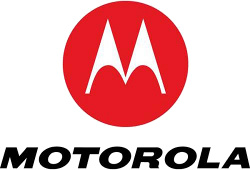 Apple has asked a federal court to temporarily delay a patent infringement lawsuit against Motorola Mobility pending the completion of Google's takeover.
Apple has asked a federal court to temporarily delay a patent infringement lawsuit against Motorola Mobility pending the completion of Google's takeover.
Apple's lawyers claim the acquisition agreement with Google results in Motorola Mobility losing their standing to sue because they have already given up control of the patents in question, as well as their right to negotiate binding legal settlements. They say this means any decisions or settlement in the case could be challenged by Google.
According to a report from FOSS Patents, the filing states "[W]ere Apple to prevail in this case, it risks an attack on its victory on appeal by a third party, whether Google or another Android smartphone manufacturer, contending that the judgment should be overturned due to a lack of prudential standing."
Among other arguments, Apple lawyers cite a case in which Google lawyers argued against the standing of a shell company suing for patent infringement damages. In that case Google argued the company which controls the patents must bring the suit.
While the relationship between Google and Motorola Mobility is different in this case, their argument appears, at least on the surface, to be valid.
If Google has the authority to make any decisions regarding Motorola Mobility patents or settlements, it would seem they must be a party to the case.
However, they have no standing to join the suit against Motorola Mobility because they don't own any of Motorola's patents yet.
According to a report from FOSS Patents, the filing states "[W]ere Apple to prevail in this case, it risks an attack on its victory on appeal by a third party, whether Google or another Android smartphone manufacturer, contending that the judgment should be overturned due to a lack of prudential standing."
Among other arguments, Apple lawyers cite a case in which Google lawyers argued against the standing of a shell company suing for patent infringement damages. In that case Google argued the company which controls the patents must bring the suit.
While the relationship between Google and Motorola Mobility is different in this case, their argument appears, at least on the surface, to be valid.
If Google has the authority to make any decisions regarding Motorola Mobility patents or settlements, it would seem they must be a party to the case.
However, they have no standing to join the suit against Motorola Mobility because they don't own any of Motorola's patents yet.












